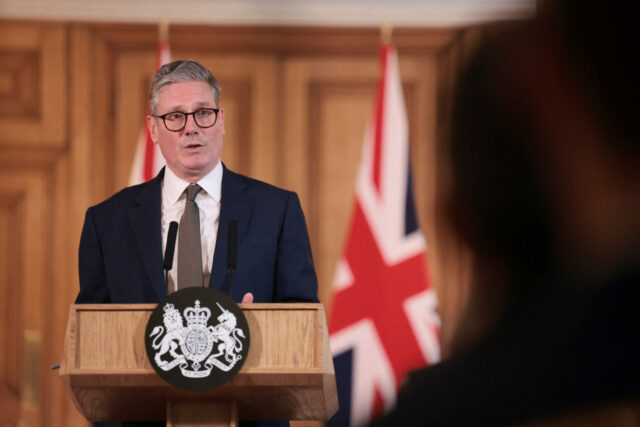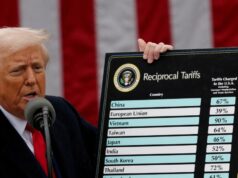British Prime Minister Keir Starmer has swiftly initiated changes, eager that Britishers soon forget the 14 years of Conservative rule. One of his most notable moves is fostering stronger ties with India. Starmer’s first call with Prime Minister Narendra Modi emphasised a commitment to swiftly resolving the long-pending Free Trade Agreement (FTA) and renewing the Comprehensive Strategic Partnership (CSP). Modi even extended an invitation to Starmer for a visit to India later this year.
This proactive approach has garnered positive attention in New Delhi. Analysts believe Starmer’s eagerness to finalize the FTA and encourage Indian investment in the UK signifies a robust, India-friendly policy. Currently, India stands as the second-largest source of foreign direct investment (FDI) in the UK, following the US. British exports to India have also seen a significant rise, increasing from $9.3 billion in March 2019 to $13 billion in March 2024.
Starmer faces internal challenges
Managing internal party dynamics, especially concerning Indian-origin MPs, will be crucial for Starmer. His ability to balance their strong views on India with his broader diplomatic goals will determine the success of his policies. This is where Starmer is likely to face potential hurdles within his party. Several Indian-origin MPs hold strong opinions on India-related issues, which could complicate his efforts.
Potentially problematic MPs
Shabana Mahmood, the newly appointed Justice Secretary, is a notable figure in this context. Mahmood, whose family hails from Mirpur in Pakistan-occupied Kashmir, has been vocal about India’s actions in Jammu and Kashmir. She criticized the revocation of Article 370, calling it “illegal” and “unconstitutional.” Her active participation in protests and demands for international observers in the region reflect her strong stance on the issue.
Lisa Nandy, now serving as the Cultural Secretary, is another key figure to watch. Nandy has a history of criticizing India’s policies in Kashmir. Her calls for international mediation and intervention have positioned her as a controversial figure among Indian supporters in the UK. The Overseas Friends of BJP even labeled her as “anti-India,” pledging to campaign against her.
Preet Kaur Gill, the first Sikh woman MP in the UK, also presents challenges for Starmer. Gill has been an outspoken advocate for Sikh issues, including allegations of Indian agents targeting British Sikhs and supporting the Khalistan movement. Her comments on the farmers’ protests and Punjab’s drug problem have sparked heated debates, and she has faced threats and protests as a result.
Tanmanjeet Singh Dhesi, re-elected from Slough, has been vocal in opposing India’s farmers’ laws. He has criticized the Indian government’s actions during the farmers’ protests, drawing accusations of harbouring pro-Khalistani sentiments from Congress member Abhishek Singhvi. His comments on police actions against pro-Khalistani separatist Amritpal Singh and the then internet blackout in Punjab further highlight his contentious position.
Economic reforms: focus on green energy and Brexit
Party dynamics aside, Starmer’s economic agenda for his first 100 days in office will be the “economy, economy, economy.” Party insiders say his strategies draw inspiration from Bidenomics, which focuses on green energy, housing reform, and targeted taxes on the wealthy.
Great British Energy
One of Starmer’s proposed initiatives is the creation of Great British Energy, a state-run company dedicated to green energy. This initiative, backed by £28 million in annual green subsidies, aims to make the UK self-reliant in energy and boost job creation through the development of electric car battery factories. This plan mirrors President Biden’s efforts in revitalising the Rust Belt states through manufacturing and is believed by Labour strategists to be the best way to bring jobs to the hinterland.
Rewriting Brexit
Starmer also seeks to restore the UK’s status as a prime investment destination by renegotiating parts of the Brexit deal. He has expressed a desire to secure a better deal for Britain without rejoining the European single market or customs union. Instead, he is focussing on bilateral agreements with key European nations like France and Germany.
Starmer’s meeting with French President Emmanuel Macron, while he was still the opposition leader, was reportedly successful. Starmer’s willingness to work with far-right leader Marine Le Pen, should her party come to power, indicated his pragmatic approach to international relations.
“I’ve always supported bilaterals as well as EU-wide agreements. They’re not mutually exclusive,” he said.
Migration policy overhaul
Starmer has swiftly moved to dismantle the controversial Rwanda Deportation Plan, a Conservative policy aimed at deporting asylum seekers to Rwanda. This plan faced significant criticism, especially after the UK High Court and Supreme Court ruled Rwanda unsafe for refugees.
In his first speech as Prime Minister, Starmer declared the plan “dead and buried.” He has emphasised a shift towards more effective measures, reallocating the £75 million budget to tackle people smuggling and expediting asylum claims processing. Starmer said he aims to send back nationals from friendly countries like India and Pakistan ensuring that Britain does not have to keep asylum seekers for long periods in the country.
Starmer’s tenure as Prime Minister will mark a significant shift in British politics. His bid to reframe the India-UK relationship, his commitment to green energy to secure the future of Britain, and his bid to deal with migration will mark changes for a country that has been struggling to catch up with its European and G7 counterparts post-Covid. However, navigating internal party challenges and maintaining good relationships with India and European counterparts will be key to ensuring these changes are a success. How the new prime minister manages this remains to be seen.
Traveller, bibliophile and wordsmith with a yen for international relations. A journalist and budding author of short fiction, life is a daily struggle to uncover the latest breaking story while attempting to be Hemingway in the self-same time. Focussed especially on Europe and West Asia, discussing Brexit, the Iran crisis and all matters related is a passion that endures to this day. Believes firmly that life without the written word is a life best not lived. That’s me, Ashwin Ahmad.





